
Agenda, October 7
Dartmouth Cove
Several years worth of public debate and concern culminated in a public hearing on Tuesday. The stakes? Whether or not HRM should implement a bylaw restricting infill in Dartmouth Cove. Council has received a lot of feedback on this issue over the years and the passion and concern that the Dartmouth community feels about this was on prominent display on Tuesday night. Speaker after speaker asked Council to approve the proposed bylaw amendments.

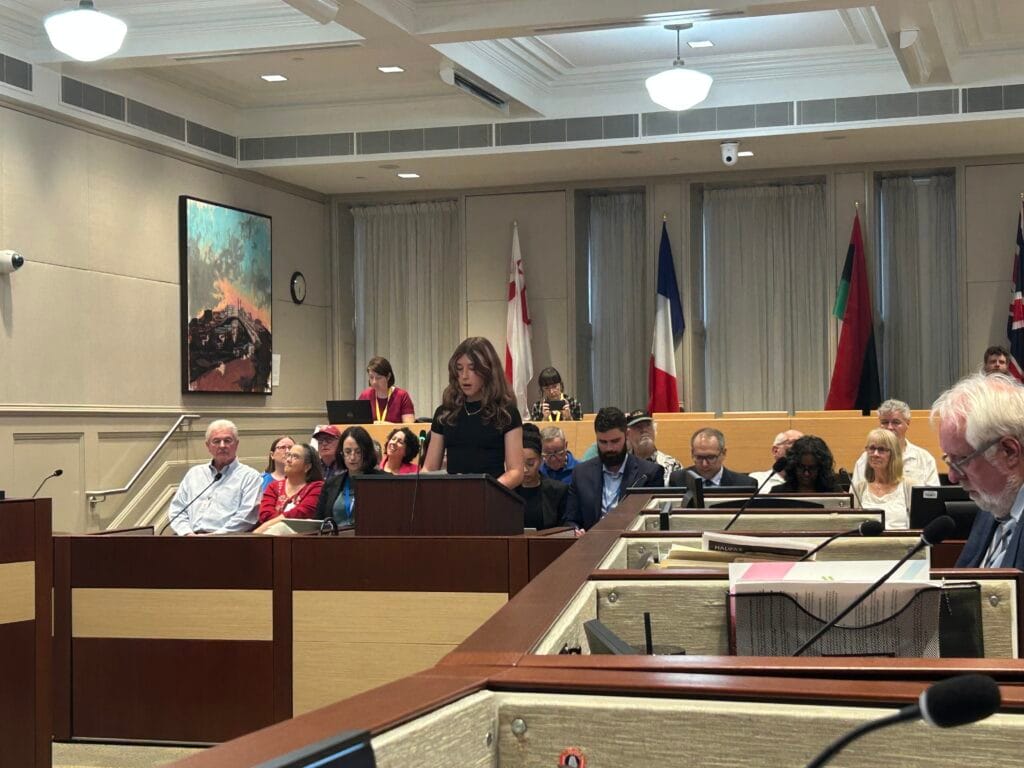
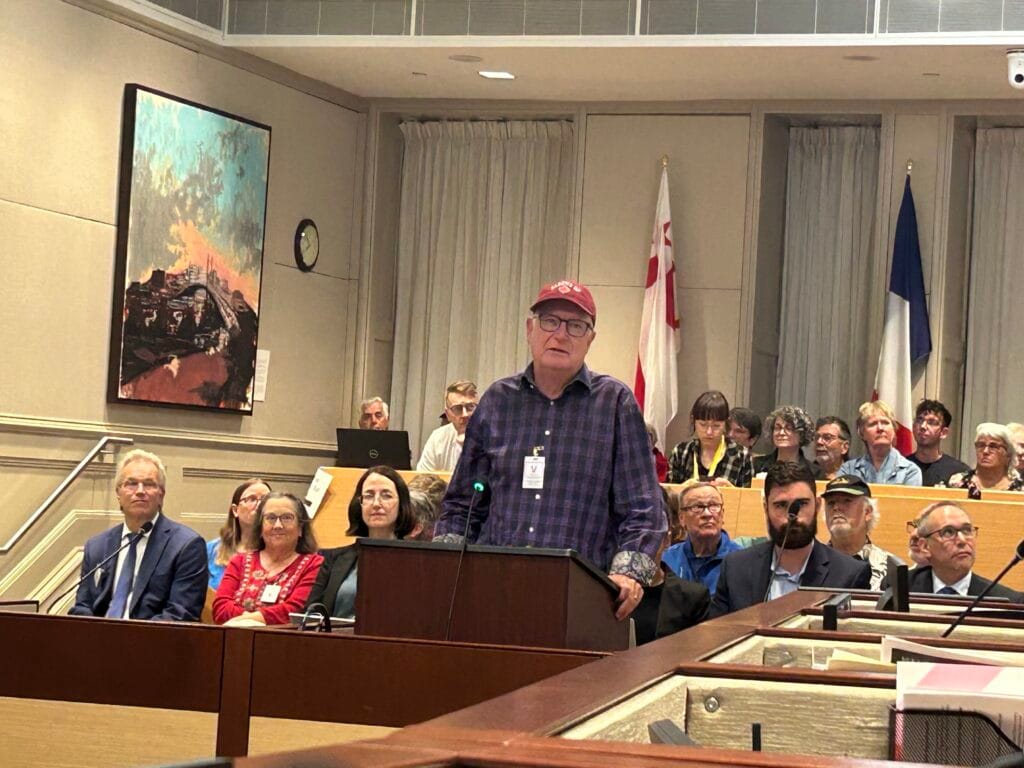
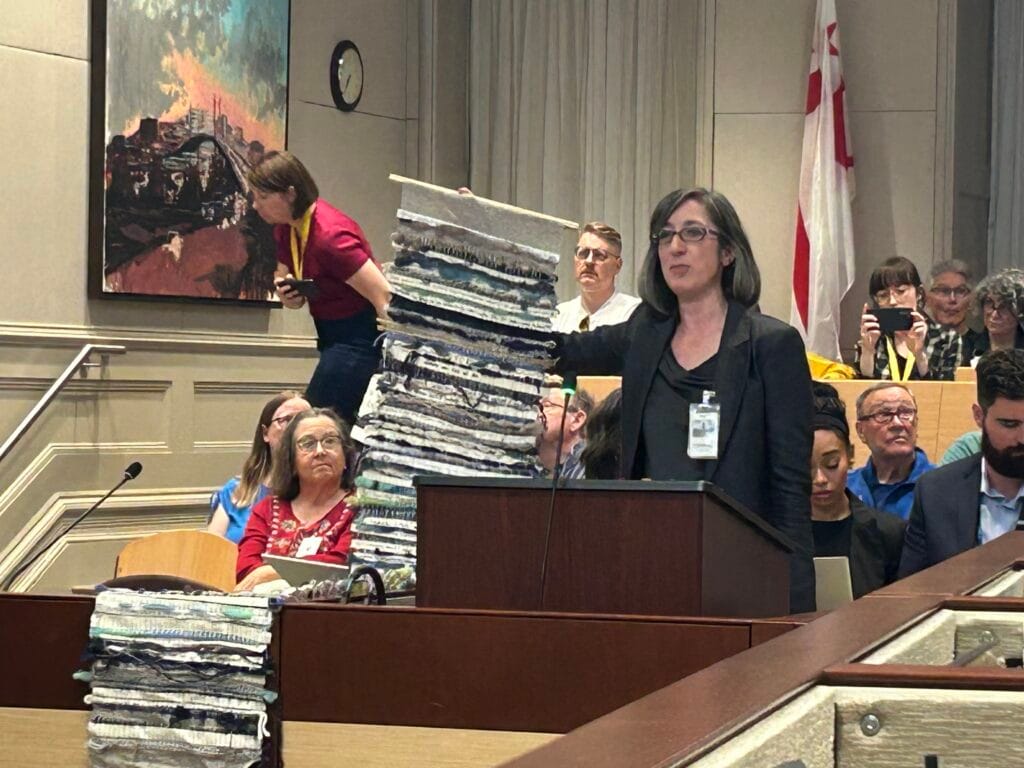
A few of the affected property owners, including the leadership of Atlantic Road Construction and Paving, also spoke. They asked Council not proceed with the bylaw changes. the property owners emphasized the need for pyritic slate disposal in the Harbour. At the end of the lengthy public hearing, Council opted to proceed with the bylaw changes 12-3 (Councillors Kent and Deagle-Gammon were away on HRM business and couldn’t attend). The no votes came from Mayor Fillmore, and Councillors Hendsbee and Young.
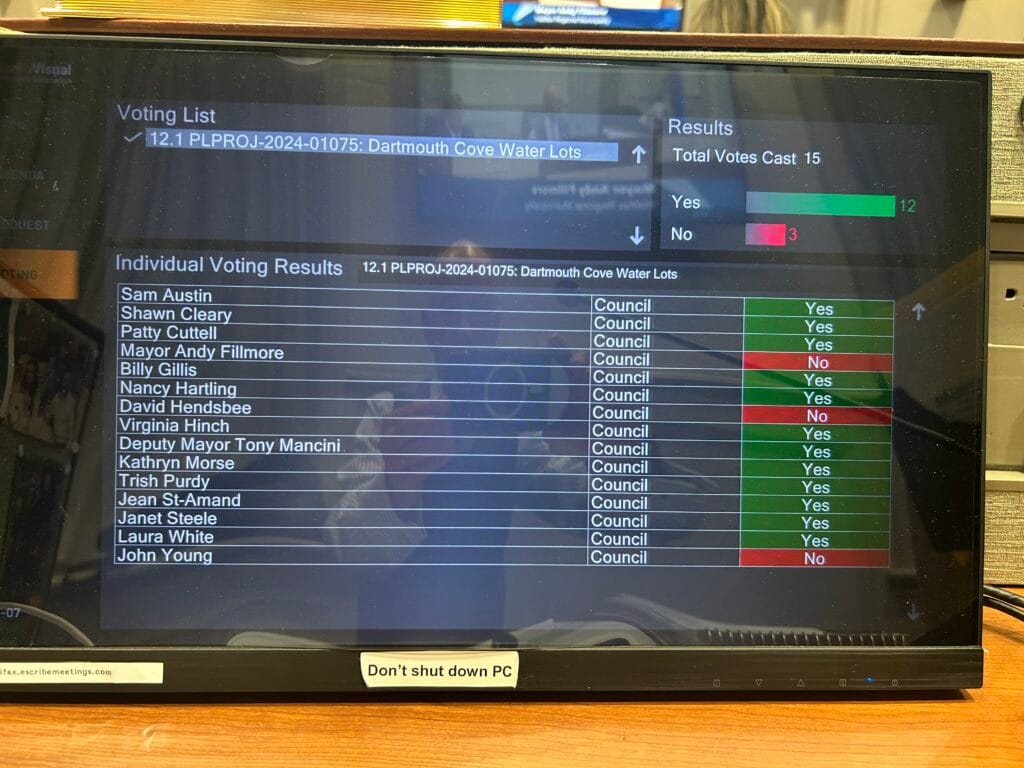
I’m delighted with this decision. It not only responds to legitimate community concerns about Dartmouth’s waterfront being turned into a rocky moonscape with no long-term plan, but also allows for good community level planning to continue through the Dartmouth Waterfront Plan. So it might surprise you to hear that HRM planning staff recommended against Council proceeding with a bylaw at this time. Staff’s major concern was a lack of clarity around if other orders of government will support HRM in regulating infill. This is an important consideration because HRM can’t regulate alone. We need the active support of the Provincial and Federal governments. Staff recommended that Council instead wait on taking any action until the completion of the Dartmouth Waterfront Plan in late 2026. I appreciate where staff are coming from in preparing their recommendation, but disagree with their conclusion.
In the absence of regulation, any private water lot owner in Dartmouth Cove could opt to fill in their property if they meet the Federal government’s narrow requirements around fish habitat and navigation. This could happen before the Dartmouth Waterfront Plan is complete. The risk here is that rather than an overall vision for the waterfront guiding growth and development, the waterfront plan will instead be dictated by the actions of individual property owners. This to me was a strong argument for proceeding with restrictions on infill now in advance of the plan. Restricting infill now protects the integrity of HRM’s own planning process!
The other piece that I think staff couldn’t fully take into account is the political situation, which in fairness is not their area of expertise! Dartmouth Cove hasn’t had the warm and clear support that regulating infill in the Northwest Arm had. The feds have indicated a willingness to work with HRM but there have also been caveats in all their letters while the Province hasn’t said anything at all. In my opinion, the other orders of government have been happy to let political responsibility for controlling infill in Dartmouth Cove fall to HRM. Ambiguity and confusion leaves HRM taking much of the blame without either the Feds or Province having to stake out their own position. I don’t see that dynamic changing, unless HRM actually takes action. Adopting a municipal bylaw that limits infill clearly spells out HRM’s position and requires the other orders of government to respond, either positively or negatively, to that action. For better or worse, it breaks the jurisdictional logjam. Had Council taken staff’s advice to wait, there is absolutely no guarantee that additional time for discussions at the staff level between the Province, Feds and HRM would have changed anything.

The next big hurdle for Dartmouth Cove is the Province. The Province approves all planning bylaws in Nova Scotia. This has been the case going back decades and isn’t a requirement that has come from the current government’s tendency to frequently intervene in HRM’s affairs. Provincial approval of planning decisions has typically been a formality, but the recent rejection of HRM’s Regional Plan shows, it’s not something that should be taken for granted. Politics could intervene, but I don’t think there is a strong argument for the Province to reject HRM’s Dartmouth Cove bylaw amendments.
First, the contention that HRM limiting infill in Dartmouth Cove would somehow impede housing supply has been vastly overstated. If the most contentious Atlantic Road Construction and Paving (ARCP) lot that has generated most the concern was infilled, the resulting land would end up with Park zoning since that’s the zoning that’s in place on the adjacent property. The land would also be on the other side of the railway tracks with no road access. It would take years, maybe a decade or more to complete the planning and infrastructure work and get anything built. The cost of completing all that would be significant, which would mean this would definitely be luxury housing, which the market is already producing to the point that vacancy rates have started to rise. There is no potential housing at Dartmouth Cove that would be impacted by HRM’s bylaw that would in anyway relate to our current housing crisis in terms of timing or need and there are other locations in the Harbour where pyritic slate can be disposed of.
The other reason why I believe the Province doesn’t have a strong argument to reject HRM’s bylaw is because the Northwest Arm has already set the precedent. The Province approved the exact same provisions for the Northwest Arm so why wouldn’t the same apply to Dartmouth Cove? How can the Province possibly justify approving protections for the Northwest Arm and not for Dartmouth Cove?
Some have suggested that Dartmouth Cove’s position in the working Harbour and the Cove’s industrial nature makes it different than the Northwest Arm. Dartmouth Cove does have an industrial past, which is very different from the Northwest Arm’s history, but that’s not what its current use or future is. Dartmouth Cove’s future is to be part of a Downtown residential neighbourhood. Property owners of the former industrial lands on Canal and Skokomul Streets are moving ahead with redeveloping their properties and King’s Wharf is well underway. The Centre for Ocean Ventures and Entrepreneurship is adjacent to the lots affected by HRM’s bylaw, but the only true marine industrial use still operating on the affected properties is Dominion Diving. All the other marine uses have disappeared and successive planning decisions in Dartmouth Cove have all been about transforming the area into a new neighbourhood. The Cove is a small body of water off the main Harbour, just like the Arm, and like the Arm, it’s not an industrial site. It once was a centre of industry, but it’s not anymore. If the Cove was meant to be part of the industrial working harbour, then HRM shouldn’t have approved King’s Wharf and shouldn’t have partnered with the then Waterfront Development Corporation (now Build Nova Scotia) to plan for redevelopment of the area.

So what happens next? The HRM Charter stipulates that the municipality’s next step is to provide copies of the planning bylaw amendments to the Province for review. Once received, the Provincial Director of Planning has 15 days to consider whether or not the amendments potentially conflict with Provincial interests. If the Director identifies a potential conflict, than it goes to the Minister of Municipal Affairs (currently John Lohr) for decision. The Minister has up to 30 days to either approve or reject the amendments. Putting that altogether means that sometime in November, we’ll know for sure whether the Province will allow HRM to proceed or not. Hopefully the Province will respect the will of Council and the very clearly stated community concerns.
If the Province allows HRM to proceed, it’s likely that HRM’s new bylaw will end up tested in court as ARCP has already publicly threatened to sue HRM, alleging that Council doesn’t have the jurisdiction to enact a bylaw for water lots and that they have been singled out for spot zoning. I suspect ARCP will wait to see if the Province approves the amendments or not, but that’s really an unknown. The feds will eventually also be tested as they will need to decide whether to issue permits in Dartmouth Cove subject to HRM’s bylaw and whether to potentially support HRM’s position in court. At this point, HRM has done all it can to control infill and the rest will now be up to the Province, potentially the Courts, and Federal government.
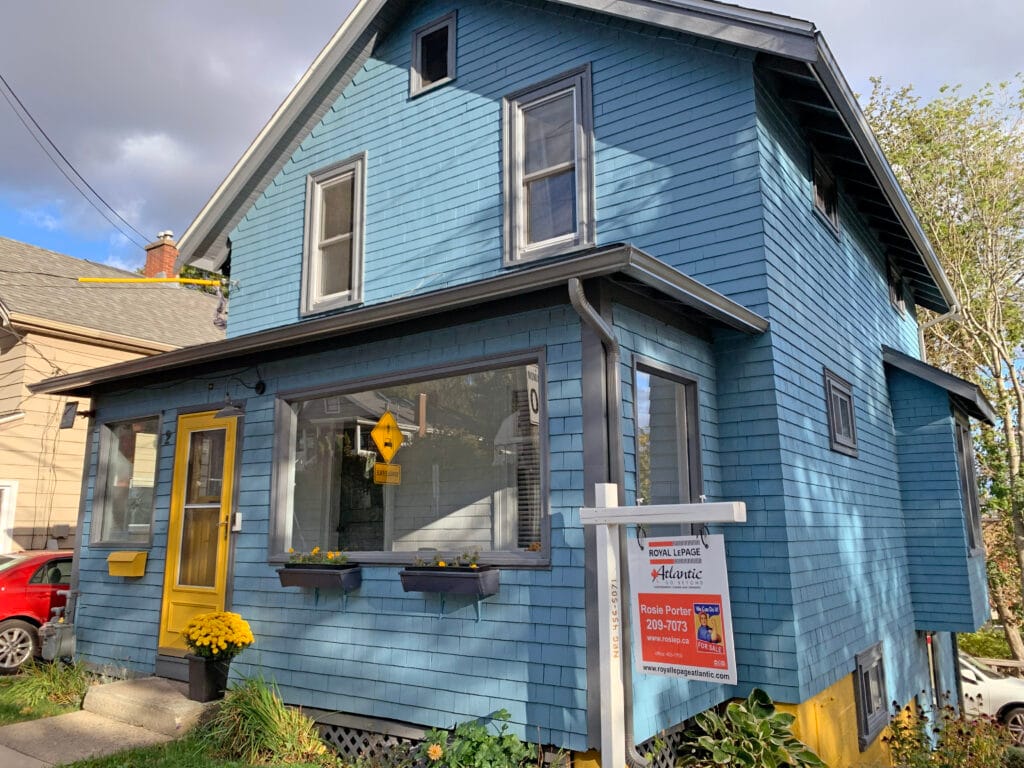
Deed Transfer Tax
Staff returned to Council with a response to my motion to raise deed transfer tax rates with a positive recommendation. I brought forward a motion on the deed transfer tax because HRM is facing major shortfalls in capital dollars. All the growth that has been happening is creating a backlog of expensive infrastructure projects on top of what HRM already needs to spend just to maintain what we have. If nothing changes, within seven years we could be over a billion in debt and have debt servicing charges totalling up to 10-15% of HRM’s annual budget. Debt isn’t free and carrying that much debt will ultimately impact tax rates! This isn’t a sustainable path.
HRM is going to have to assess what we can afford to do, continue to seek funding from the feds and province, and look for ways to raise more money ourselves. We’re going to have to do all three. I understand no one wants to pay more, but people also want HRM to provide the infrastructure that is necessary to maintain a high-quality of life. There is no easy answer, and I believe it’s important for Council to face the fiscal realities head on and not settle for politically expedient answers that aren’t sustainable over the long-term or fiscally responsible.
In looking at potential ways to raise more money, the deed transfer tax is a good place to start. It doesn’t have an ongoing impact on people in terms of their day-to-day, it’s paid only when property changes hands. Deed transfer tax revenue totals between $60-$70 million a year right now and HRM has recently adopted a policy of directing any excess deed transfer tax revenue over $60 million into HRM’s reserves. Deed transfer tax revenue is much more volatile than property tax revenue so building in a buffer on HRM’s projections and committing the excess to one-time capital projects rather than using it to fund ongoing operations is good policy! Every additional dollar over $60 million that HRM collects in deed transfer is money that will go into HRM capital projects, reducing the municipal debt burden, and reducing the long-term pressure on HRM’s finances.
The good news is there is ample room to adjust the deed transfer tax rate while actually helping make life more affordable for the middle class. Most cities across the country have higher deed transfer tax rates than HRM and some have tiered systems. Tiered systems allow municipalities to charge higher rates on higher value property sales. This makes sense since there is generally a much greater ability to pay for someone buying a mansion on the Northwest Arm versus half a duplex in Eastern Passage. In HRM, however, deed transfer tax rates are currently one flat rate of 1.5%. The mansion on the arm and the duplex in Eastern Passage pay different amounts, but they are taxed at the same 1.5% rate. Staff are proposing to change this.
Under staff’s suggested tiered approach, deed transfer tax rates would range from 1% up to 2.5%, with an additional luxury home tax of 1% for residential property sales of over $2,000,000. The result would be that sales of under $700,000 would pay less than is the case right now! The average deed transfer tax sale price in 2024 was $472,538, which if a tiered approach had been in place, would have reduced the tax to the average property buyer by $1,000. At the same time, closing some loopholes around corporate share transfers and collecting more on higher value property sales would have netted HRM at least $25 million more in revenue. That isn’t an insignificant sum! That’s about 25% of the Forum’s costs, or 16% of the Windsor Street Exchange or about 7% of the Burnside Transit Centre each year. HRM could take in more revenue to significantly help pay for the costs of growth while also addressing affordability by reducing costs for those with less ability to pay. This feels like as close to win-win as you get when it comes to taxes. Council approved the motion 13-2 with Mayor Fillmore and Councillor Hartling voting no.
Unfortunately, municipalities aren’t free to adjust the deed transfer tax rate ourselves. A maximum deed transfer tax rate of 1.5% is set out in the HRM Charter and the Municipal Government Act. Making any change here will require the Province’s agreement. Hopefully the Province will give serious consideration to this request as it has the potential to be fiscally responsible while also addressing affordability.
I was really disappointed in the Mayor’s no vote on this proposal. The Mayor speaks for Council and HRM and is often a crucial sales person for HRM legislative requests to the Province. Not having the Mayor on side with reforming deed transfer taxes makes this less likely to get Provincial attention and support, which is a real shame because it’s a damned good idea. The Mayor has talked about fiscal restraint, but other than spending the one-time Library savings (a mistake in my opinion) and some small service cuts (reduced green bins) I haven’t seen much leadership as to how he believes we should right HRM’s fiscal ship. In fairness, he has made some motions, which staff are still in the process of bringing back responses too, so that might change, but, after being through eight municipal budgets, I personally don’t see anyway of avoiding difficulty realities: we have a $60 million dollar hole in the operating budget and unsustainable borrowing looming over the capital budget. Fiscal responsibility is about more than low taxes. It’s about making sure what’s going out matches what’s coming in and that we aren’t leaving those who come after us with an unsustainable burden. I expect the coming budget deliberations this year will be challenging!
Other
- Approved a military flypast for Remembrance Day
- Adopted changes to Council’s operating procedures (Administrative Order 1) to bring forward regular updates on recommendations from the municipal Auditor
- Initiated a planning process to adopt the Province’s minimum planning standards as set out by the Province in the interim planning area last week (public consultation on this is a check box for anyone but industry as HRM has no real say on any of this and the Province has made it clear that it’s only industry stakeholders that they care to hear from)
- Finalized updates to HRM’s campaign finance bylaw
- Accepted staff’s recommendation to cancel the Spring Garden Road Transit Priority Pilot and to reconsider this as part of the bus rapid transit plan instead
- Scheduled a heritage hearing to consider registering 1158 South Park Street as a heritage property
- Requested that the Mayor write the Province requesting Charter amendments to allow HRM to create a construction mitigation fund to compensate businesses impacted by long road closures (this is coming from Councillor Morse who is responding to disruptions on Dutch Village Road)
- Requested a staff report on the use of ground penetrating radar in advance of major road construction projects to reduce the unknowns that are later discovered during construction and that cause cost escalations and delays


Given the fiscal situation and budget shortfalls the municipality is in why hasn’t there been no strategic review of programs and expenses in every department? Everyone who has every worked in any level of the pubic service knows waste and duplication exist.
That’s actually underway now. Staff do think we can gain some efficiencies but we’re not going to efficiency our way out of this hole. It’ll help, but it won’t forestall the need for tough choices about cuts that will impact people or tax increases.
Fillmore voted no? I wonder why…..
Ever heard of “follow the money”…?
Alex, are you surprised? That fool cares for nothing but his and his billionaire buddies’ pockets
Time to look at cost cutting perhaps, look at your cities benefit packages, pension packages, wages, productivity levels. Before you make Halifax more unaffordable, look in your own playpen first. The various levels of government already add 30-35% to the cost of new homes. Look at how many sick days, pension benefits wage cost and align them with the private sector. Some employees would win, some would lose…..
That’s not how union bargaining works. No one gives up pay and benefits voluntarily. When it comes to police and fire, you can’t even negotiate as everything is done by binding arbitration. What you’re suggesting would be guaranteed strikes and service disruptions.